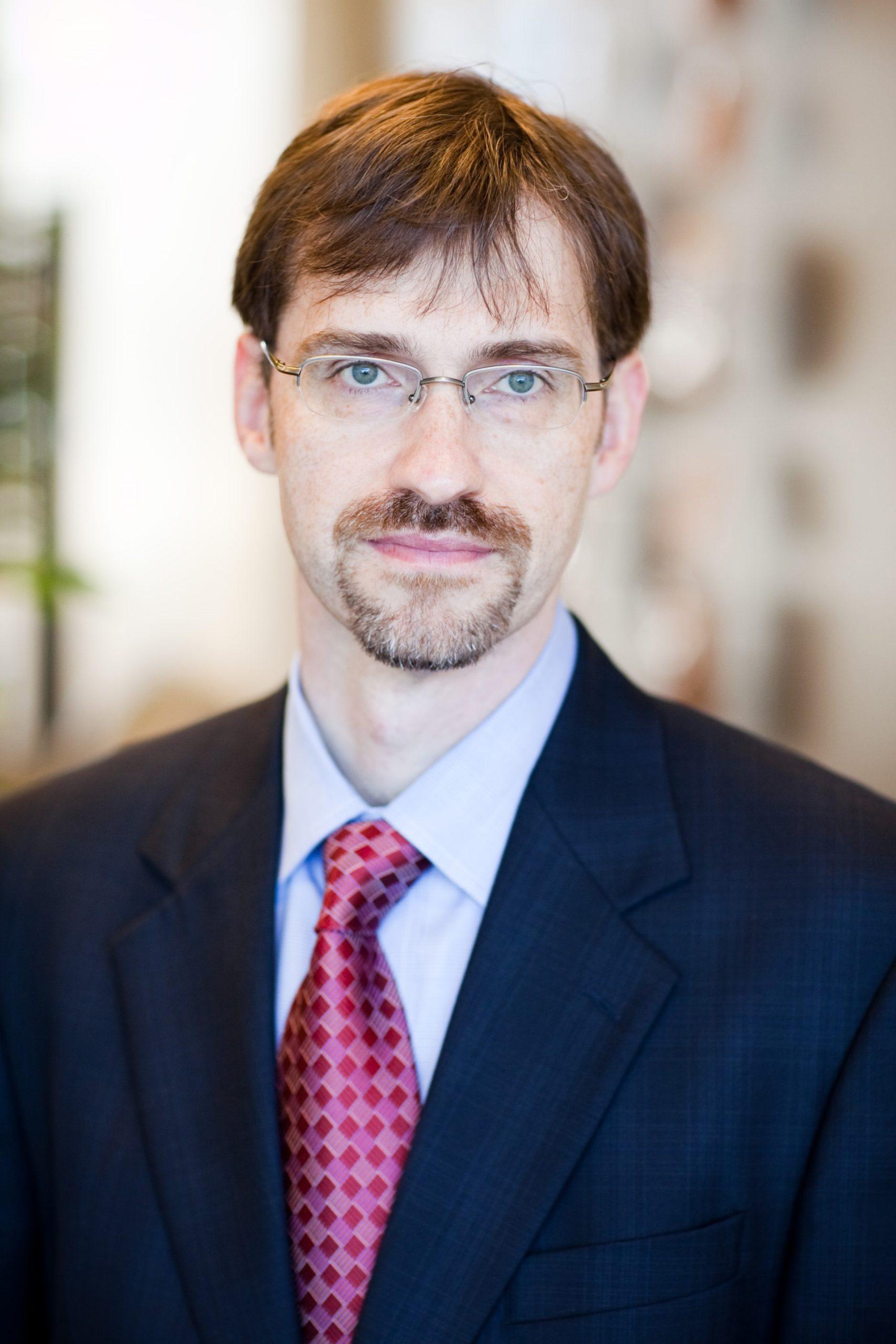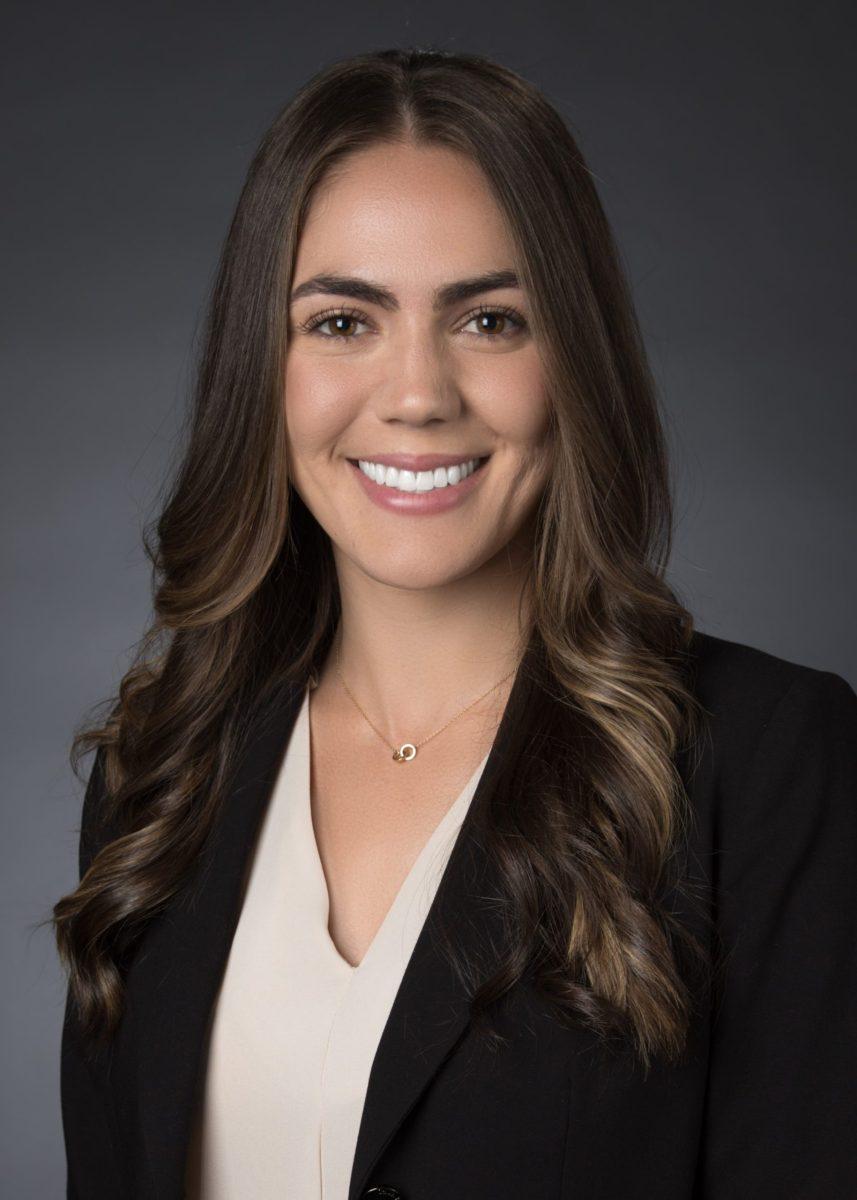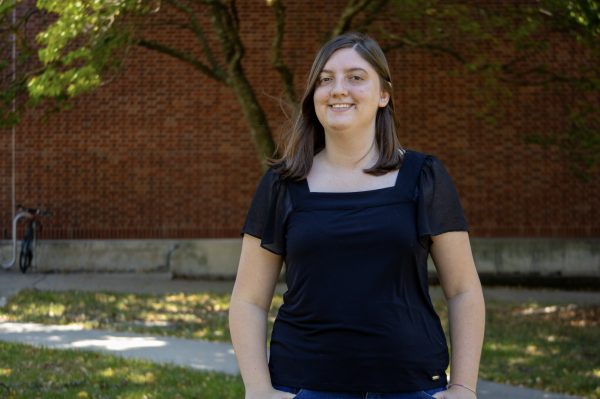
This year, Drake University hired two new law professors.
Professor Christoph Henkel will teach upper level business courses, and Assistant Professor Alexa Perez will teach the courses related to civil procedure and evidence.
“We need to have professors that will embrace the Drake culture, which is always about preparing students to practice law, and they both really fit that profile,” Law School Dean Jerry Anderson said.
One of Drake University’s requirements for law professors, according to Anderson, is experience in law.
“We believe that you can’t teach people how to practice law unless you’ve done it yourself,” Anderson said. “So we do look for good legal experience, and then we also look for ability to teach and that you care about students.”
Christoph Henkel and collaboration in law
Henkel grew up in a small agricultural town in Western Germany, which he considers similar to rural Midwestern towns.
“There is, I think, a lot that I can bring to connect to students from some of these smaller towns. I’ve been there.” Henkel said.
In high school, Henkel became interested in constitutional and administrative law, especially comparing law between different countries. Later, he became interested in corporate and entrepreneurial law, among other fields of law. Because German law has less specialization than American law, he was able to practice in many areas.
“Media systems, common law, civil law…What are the benefits and disadvantages? Maybe we can learn from the other and implement ideas or concepts and doctrines from one another,” Henkel said.
Henkel first moved to the United States for a fellowship in Madison, Wisconsin. He met his wife in the state, which he said made him decide to stay in the country.
After graduating law school, he conducted research on financial clearinghouses, climate change’s impact on investment and insurance and banking in the cannabis industry. He said he enjoys researching emerging or rapidly changing industries, like cannabis.
“[Cannabis businesses] don’t really have access to banking because banking is at the federal level. It is connected to federal laws and federal regulators, and at the federal level, [cannabis] is still prohibited,” Henkel said.
For a period, Henkel was both practicing and teaching law, but he eventually decided to focus on teaching. According to Henkel, it was “the academic discourse, research and writing and being a mentor to students” that drew him to teaching over practicing law.
Henkel said Drake appealed to him in part because of its innovative and interdisciplinary nature. Henkel said he plans to collaborate with the artificial intelligence program to study how artificial intelligence can make law more accessible.
“I could have gone to other schools even closer to home, but because of the innovation and the potential to be a little bit more at the forefront of legal education and the changes in legal practice, I came here,” Henkel said.
Alexa Perez and law as public service
Perez grew up near Miami, Florida. She completed her undergraduate degree in biology at the University of Florida on a pre-med track. Perez soon changed her major to English and started in a teacher’s aide position in which she taught English to non-native speakers.
“I realized that there were underlying issues affecting students in the classroom that had less to do with their want or desire to perform well,” Perez said. “They were sort of external issues, and that led me to then do an internship with an immigration attorney.”
While working with the attorney, she decided to go to law school.
“The draw is to help. At its core, the law is a service to the public,” Perez said.
She took classes at the University of Chicago, including a number of criminal law classes. Perez said that, while interning for a federal judge, the criminal cases interested her the most.
During her time at Sidley Austin LLP, in Chicago, she worked on complex commercial litigation and then decided to also specialize in civil law.
“Sometimes corporations are vilified, and I think everybody deserves representation,” Perez said.
After her time at Sidley Austin, Perez served as a Special Assistant United States Attorney for the Southern District of Iowa, specializing in criminal law. In this position, many of the people she talked to about cases, such as the jury or defendants, were unfamiliar with complex law, which she said made her consider teaching law as a profession.
“I think I’ve learned to be a better lawyer, and, I think, a more empathetic lawyer,” Perez said.
She said that the mentorship aspect of teaching and time to work on scholarship were also draws for her. Previously, she’d studied the effects of activism movements such as #MeToo or Black Lives Matter on lawsuits about companies misrepresenting diversity. She is currently working on scholarship about prejudice in evidence and the effectiveness of evidence rule 403, which weighs prejudice in evidence versus its necessity to a case.
Drake’s location was a major draw for her since she loves the Des Moines area. The welcoming feeling from the faculty and staff and the small class sizes were also draws, she said.
Perez hopes to integrate her experiences into the classroom.
“I think my experiences also allow me to better mentor different types of students who are interested in different things because I can give them advice and work with them to seek out those kinds of opportunities,” Perez said.








